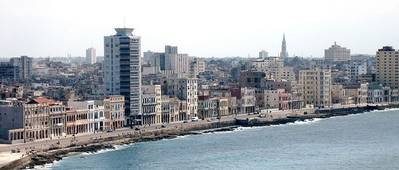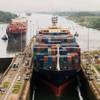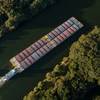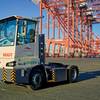Cuba Struggles to Attract Investors Despite Reforms
Cuba has yet to attract new foreign investors despite launching two major initiatives in the past year, a sign of the lingering caution over doing business with the communist government and its own hesitancy to follow through on free-market-style reforms.
Cuba last November opened a China-style special development zone, including a new container terminal at Mariel Bay. It also passed a new foreign investment law in March, saying it needed more than $2 billion a year in foreign direct investment to spur growth.
But despite cutting taxes and lowering customs barriers in line with other investment regimes in the Caribbean, Cuba has yet to overcome the disadvantages associated with the U.S. economic embargo as well as its Soviet-style economy.
"Cuba has a ways to go in learning how to react with agility to business opportunities," said Pedro Freyre, who heads the international practice at the Miami-based law firm Akerman LLP, which closely follows the reforms under way on the island.
The new foreign investment law, which took effect at the end of June, cut the tax on profits in half, eliminated a labor tax and granted new investors an eight-year exemption on a profits tax.
Though potential investors welcome the tax cuts, some remain wary over Cuba's legal regime, especially after the recent jailing of a handful of foreign executives and the seizing of their businesses over corruption allegations.
Investment proposals under negotiation, which still must be approved at the highest level of the Cuban government, include projects in light manufacturing, packaging, alternative energy, pharmaceuticals and warehouse shipping logistics, according to officials.
Consumer goods giant Unilever , which left Cuba in a dispute over who would have the controlling stake in a joint venture with the government, is said to be negotiating a return to Mariel.
Two other companies considering operations in Mariel, according to diplomats, are in joint ventures with the Cuban government: French beverages company Pernod Ricard and cigarette maker BrasCuba, part of the Brazilian subsidiary of British American Tobacco.
High Hopes
Cuba's economy is stagnating despite a raft of market-oriented reforms initiated by President Raul Castro in 2008. Cuba reported growth of just 0.6 percent in the first half of this year and revised downward its full-year growth forecast to 1.4 percent from 2.2 percent.
Castro has proposed moving 40 percent of the state labor force to a new non-state sector made up of farms, small businesses, cooperatives and joint ventures, and state-run companies have been granted more autonomy.
Bringing in more investment is seen as crucial to the economy. Castro recently told the National Assembly that Cuba needs to attract a minimum $2.5 billion per year to reach annual growth targets above 5 percent.
But eying such a quick pace of growth might be overly ambitious.
Omar Everleny, an economist who specializes in foreign investment, estimated in a recent paper that just $5 billion had been invested in Cuba over the last 20 years.
The government had hoped foreign companies would build factories or new import-export installations at Mariel, some 28 miles (45 km) west of Havana. The special economic zone, covering 180 square miles (466 square km), drew some interest from potential investors, most of whom had existing business ties with Cuba.
But they discovered a paucity of infrastructure in and around the port. Land and utility prices had not even been established. No wage policy was set. Lacking such basic information, companies delayed negotiations and the feasibility studies needed for approval.
Likewise with the new foreign investment law, the promised lists of investment opportunities by government ministries, from agriculture and industry to food processing and pharmaceuticals, have yet to be drawn up.
"Cuba's foreign investment law and its Mariel development zone are emblematic of most of the recent reforms on the island. Many of the changes are in the right direction, but not happening fast enough," said Peter Schechter, director of the Latin American program at the Washington-based Atlantic Council.
Still, one Western diplomat predicts a number of ventures will be signed by the end of the year.
"They have absolutely no choice but to change," the diplomat said. "They need investment in all sectors to survive."
(Reporting by Marc Frank; editing by Daniel Trotta, G Crosse and Kieran Murray)














